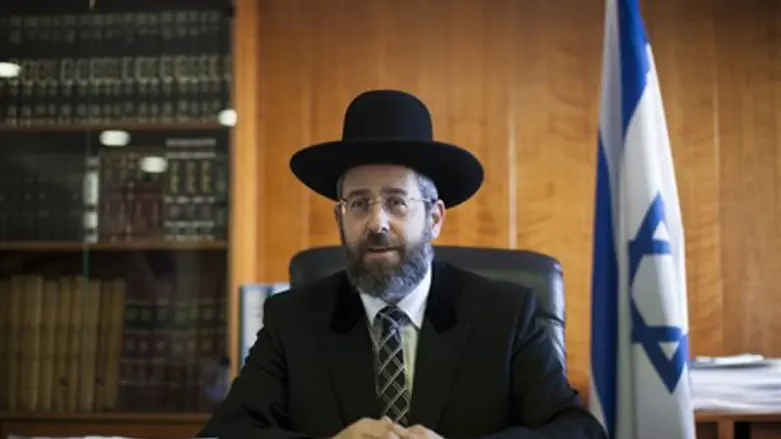
Chief Ashkenazi Rabbi David Lau spoke before 400 rabbis on Thursday, in a conference at the Ministry of Religious Services in Jerusalem. His speech centered on the topic of the shemittah sabbatical year in which Jewish law forbids agricultural work, letting the land of Israel rest.
The next shemittah year will begin this coming Rosh Hashana (Jewish new year) in September. Rabbi Lau urged the rabbis to consult with farmers to clarify Jewish law regarding the special seven year cycle.
The somewhat complex issues of shemita were thoroughly explained in Arutz Sheva articles in 2007, ahead of the previous shemittah year.
The Torah commandment to leave fields fallow for one year every seven years involves many complicated Halakhic (Jewish legal) issues, and opinions differ on how best to adhere to the laws without unduly harming farmers' livelihood.
"We prefer that as many farmers as possible will completely refrain from their work according to the commandment of the Torah, and we must offer them 'otzar beit din (public treasury),'" stated Rabbi Lau, referring to one such opinion, preferred by many rabbis. But he added that those who choose to follow alternative methods, such as the "heter mechira", "must do so in accordance with Halakha (Jewish law) and by the precise instructions about the four forbidden types of work."
The two methods mentioned by the Chief Rabbi are ways of accommodating the near-impossible financial hardship of not working one year out of seven.
By 'public treasury,' harvest and distribution is conducted since produce is forbidden to be sold but not to be eaten. Therefore fields are maintained, not for commercial profit, but by a body representing the wider public. In 'heter mechira,' the land is temporarily sold to non-Jews, thereby circumventing the ban on cultivating Jewish land and exempting it from shemittah.
"I suggest that instead of rabbis talking against each other and presenting a dispute in their positions on shemittah every seven years, each one should act according to their rabbis and respect each other," emphasized Rabbi Lau.
In the context of mutual respect, the Chief Rabbi remarked that as soon as he took his position he suggested meeting with his Sephardic counterpart Rabbi Yitzhak Yosef weekly.
"I told the Rishon Letzion (Rabbi Yosef) that unfortunately there are rabbis who will try to make controversy between us, but in our positions we will sit together G-d willing ten full years without 'please part from me' (Genesis 13:9)," remarked the rabbi, emphasizing cooperation. (His Biblical reference was the the episode when Avraham and his nephew Lot parted ways due to irreconcilable differences in lifestyle).
Rabbi Lau noted that debates between rabbis are "today unfortunately portrayed as a desecration of G-d's name and as disputes. Every word out of place said by a rabbi can cause of desecration of G-d's name, contempt for rabbis and all people."
The rabbi concluded "we must guard the holiness of the land, but no less the holiness of man and of each other."